I love the work I do. I admire and respect my colleagues and clients. Donors inspire me every day. I’m proud to call myself a fundraiser and I’m grateful that I found my way into this profession thirty-some years ago. I’ve watched the profession and the sector grow and change and I’ve learned a few important things along the way.
Anyone can learn how to do fundraising. There’s an endless supply of education, tips, tricks, methods and know how. But figuring out how to be a good fundraiser is tougher. It’s not about what you know, it’s more about the person you are.
Here’s what I’ve learned along the way …
Have purpose.
Know who you are, what you stand for, what you want and why you’re here. Think about your values, what you believe and where you find meaning. Approach each day, week, month, and year with some sense of a broader goal. “Having a purpose is the difference between making a living and making a life.”
Practice grace.
Be courteous, kind, considerate and thoughtful every step of the way. Lead by example, be proactive and if you’re wrong, own it. That applies to everything we do and everyone we meet. Your donors and colleagues deserve the you that speaks with them from a place of courtesy and kindness.
Smile, be happy.
“Sometimes your joy is the source of your smile, but sometimes your smile can be the source of your joy”. There’s magic in your smile – the act of smiling activates neural messaging in your brain that benefits health and happiness. If you’re happy and you know it everyone else knows it too – it literally shines through in everything you do. So, even though you might not feel like it, do your best to smile – it’s contagious and people treat you differently.
Make gratitude part of every day.
Take the time to notice and be thankful for, well…everything. Our beautiful world. The hot fresh coffee you had this morning. Holding hands with someone you love. The stranger who smiled at you on the bus. Helping someone in need and the fact that you’re able to do that. That someone helped you. Research suggests that people who regularly practice gratitude by taking time to notice and reflect upon the things they’re thankful for experience more positive emotions, feel more alive, sleep better, express more compassion and kindness, and even have stronger immune systems. Being grateful impacts the person you are, and the person you are impacts the fundraiser you are.
Be positive.
“A pessimist sees the difficulty in every opportunity; an optimist sees the opportunity in every difficulty.” Life is hard. Things go sideways. We all have bad days. There will always be challenges. Everyone agrees on that. How we choose to deal with those times is what makes the difference. Having a positive attitude is a choice. Making the best of it is a choice.
Learn, share, teach.
Find a mentor and be one too! Ask questions. Share what you know and what you learn. I frequently hear clients and colleagues sharing stories of their learnings – successes, failures, and everything in-between. Each one of those learnings has the potential to be an article, presentation, webinar, conference panel discussion or a chat with a colleague or mentee over coffee. Take a moment at the end of every day to think about your learnings and how you intend to share them.
Respect everyone, always.
“Respect is how to treat everyone, not just those you want to impress.” Listen. Be sincere. Follow through on your promises. Be helpful. Encourage others. Say thank you.
What we do isn’t just a job, it’s a calling. I came to that conclusion early on in my career, back in the 80s – the early years of organized fundraising in Canada. Direct mail was in its infancy, donations poured in, donor fatigue didn’t exist, and donor love hadn’t been invented yet. I remember being at a conference, listening to a plenary speaker – I no longer remember who it was or what the talk was about, but I distinctly remember the awareness that hit me when I heard the speaker’s story, and the conviction that I came away with…that this is important work that must be done well.


A great article from a person who embodies the best characteristics of a seasoned and authentic fundraiser. You can have all the fancy metrics and latest findings about what makes donors give, but we are still in the people business, so it matters who you are as a person. I have learnt a great deal from you over the years, Jose and I am a better person for it! Thanks for being real!
Thank-you for an amazing article, just what I needed…. reinforcing why we do the jobs we do to make a difference!